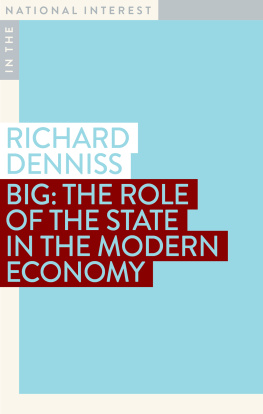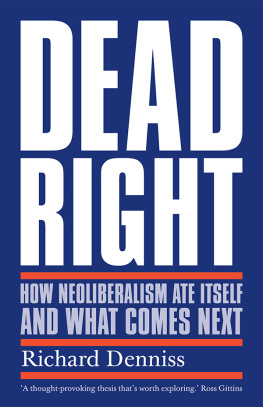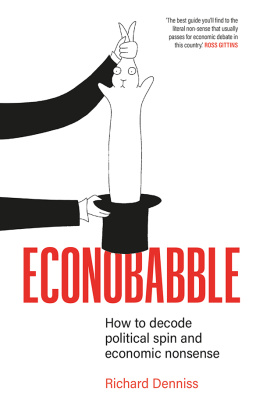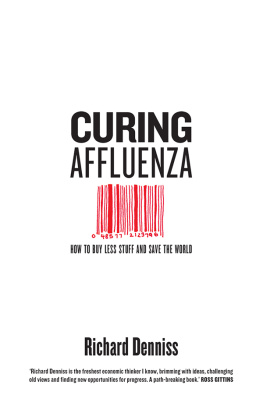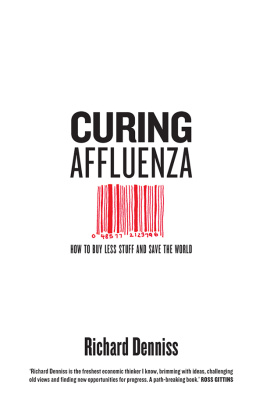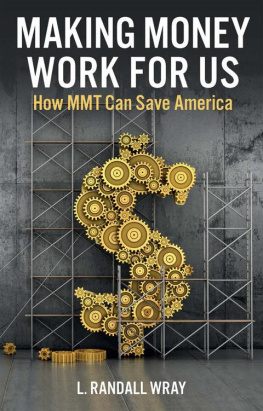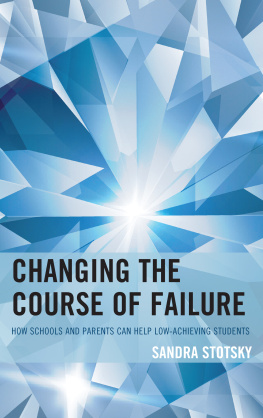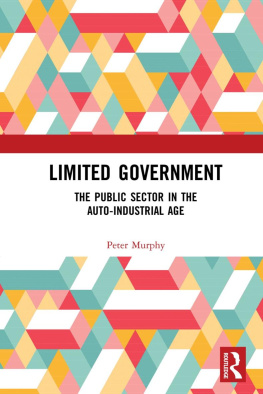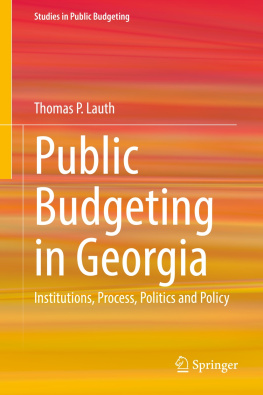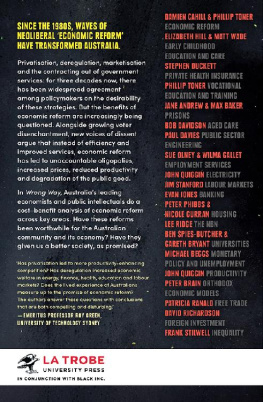SERIES
IN THE NATIONAL INTEREST
General Sir John Monash once exhorted a graduating class to equip yourself for life, not solely for your own benefit but for the benefit of the whole community. At the university established in his name, we repeat this statement to our own graduating classes, to acknowledge how important it is that common or public good flows from education.
Universities spread and build on the knowledge they acquire through scholarship in many ways, well beyond the transmission of this learning through education. It is a necessary part of a universitys role to debate its findings, not only with other researchers and scholars, but also with the broader community in which it resides.
Publishing for the benefit of society is an important part of a universitys commitment to free intellectual inquiry. A university provides civil space for such inquiry by its scholars, as well as for investigations by public intellectuals and expert practitioners.
This series, In the National Interest, embodies Monash Universitys mission to extend knowledge and encourage informed debate about matters of great significance to Australias future.
Professor Margaret Gardner AC
President and Vice-Chancellor,
Monash University
Big: The Role of the State in the Modern Economy
Copyright 2022 Richard Denniss
All rights reserved. Apart from any uses permitted by Australias Copyright Act 1968, no part of this book may be reproduced by any process without prior written permission from the copyright owners. Inquiries should be directed to the publisher.
Monash University Publishing
Matheson Library Annexe
40 Exhibition Walk
Monash University
Clayton, Victoria 3800, Australia
https://publishing.monash.edu
Monash University Publishing brings to the world publications which advance the best traditions of humane and enlightened thought.
ISBN: 9781922633033 (paperback)
ISBN: 9781922633057 (ebook)
Series: In the National Interest
Editor: Louise Adler
Project manager & copyeditor: Paul Smitz
Designer: Peter Long
Typesetter: Cannon Typesetting
Proofreader: Gillian Armitage
A catalogue record for this book is available from the National Library of Australia.
BIG:
THE ROLE OF THE STATE IN THE MODERN ECONOMY
Australias public sector isnt big enough to meet the challenges of the twenty-first century, good enough to meet the expectations of the Australian public, or well governed enough to cope with the inevitable expansion heading its way. The unfounded anxiety that Australian public spending is too high has dominated national conversations since the 1990s, even though it has no basis in fact and it no longer dominates government decision-making. The Australian public sector is growing and will continue to do so, but the determination to deny this obvious fact dampens any genuine public debate about what Australians want more of, what they want less of, and how best to pay for the services they desire.
No other country has been as insecure, or obsessed, with the existence and size of its budget surpluses. The last leaders in the United States and United Kingdom to deliver a budget surplus were Bill Clinton and Tony Blair, but no-one in those countries cares. The sky hasnt fallen, the foreign exchange markets havent punished them, and the political right still demands big tax cuts despite the big deficits. And, contrary to twenty-five years of Australian economic orthodoxy, the richest, happiest and healthiest group of countries has the worlds highest tax rates and public sectors much larger than Australias. The Nordic countries, with their bloated public sectors and burdensome taxes, have also delivered faster productivity growth than Australia. While we have moved on from dont mention the war and the inconvenient truth of climate change, the Nordic countries remain the policy examples whose names we dare not speak.
The idea that the smaller the public sector, the more efficient the economy, is completely without foundation. Just as economics is silent on how much is too much to spend on a bottle of wine, it is also silent on how much a country should spend on its health, education and welfare systems as well. While economists might encourage you to shop around for the best price for your favourite drop, never go out for dinner with someone who thinks you should always buy the cheapest wine or have the smallest public sector possible. If nothing else, you know they arent any good at economics.
People who dont like wine, cruising holidays or sports cars shouldnt buy them, and countries that dont want to provide high-quality health, education and transport to their citizens shouldnt provide them. But while there are plenty of countries that adopt that approach, there is absolutely no evidence that most Australians want to emulate them. Just as people can set arbitrary caps on how much they want to spend on Uber Eats each week, or on their holidays each year, the Morrison government has set a cap of 23.9 per cent on how much of our national income it wants to collect in tax and spend on services. But like the decision to spend no more than, say, $50 per week on home-delivered meals, Scott Morrisons cap on public spending is as baseless as it is precise.
Each year, Australians spend around $8 billion on coffee, about $2 billion on bottled water, and $1 billion on sports carseven though the maximum speed limit is 110 kilometres per hour for all vehicles. While some people believe such spending is wasteful, economists have no such concern. As a rule, we tend to think that individuals are best placed to decide how to spend their money, and that applies when we work together as well. So if a majority of Australians vote to collect more in tax and, as a nation, spend more on public services and less on coffee and sports cars, most economists think that is just fine. But to listen to Australian public debate, youd be forgiven for thinking economists believe that public spending destroys jobs, growth and innovation.
Theres nothing inherently inefficient, wasteful or burdensome about public spending. On the contrary, the public sector is so efficient at doing some things that nearly every country in the world relies on it to do some of the most important jobs. Different nations, at different points in time, have experimented with private fire brigades, judges, police forces and sewerage systems, and its no accident that most eventually favour public-sector delivery. Of course, not every citizen will agree on the importance of providing some services or the best way of doing so. Take education, for example. While Australian governments spend more money per student than Finnish governments, the Finns are widely regarded as having the best schools in the world. But as there are no private schools in Finland, and in turn no public funding for schools with indoor pools, rifle ranges and dressage arenas, clearly some in Australia consider some of our educational institutions to be far superior to their Finnish counterparts. Quality, efficiency and equity are all a matter of perspective.
The shape of public spending matters more than its size. Just as a teenager who skimps on car maintenance will ultimately learn an expensive lesson, or a stingy manager who allows their best staff to leave will likely harm their business, governments in Australia that underinvest in our people, our infrastructure and our natural environment have been setting us up to fail, not to prosper. But because we heard so much noise about the need to reduce the amount of public spending, we have been denied a genuine democratic discussion about its ideal shape. And the cracks are beginning to show.
The arrival of COVID-19 exposed the fact that some of our schools are so crowded that children arent allowed to scamper about in the playgrounds or able to wash their hands in the bathrooms. The 2020 summer bushfires showed us that we lack the resources to fight the climate-induced blazes we have fuelled. Rising tensions with China led our Prime Minister to commit to spending whatever it takes to purchase nuclear submarines that will be far more expensive than the $90 billion contract he cancelled with the French. All of this, combined with a growing population that has rising expectations of the available health, education and urban services, means that the amount of government spending, the breadth of assets owned by government, and the scope of government regulation in our lives, are set to expand in the decades ahead. The sooner we admit that, the sooner we can best shape it.

